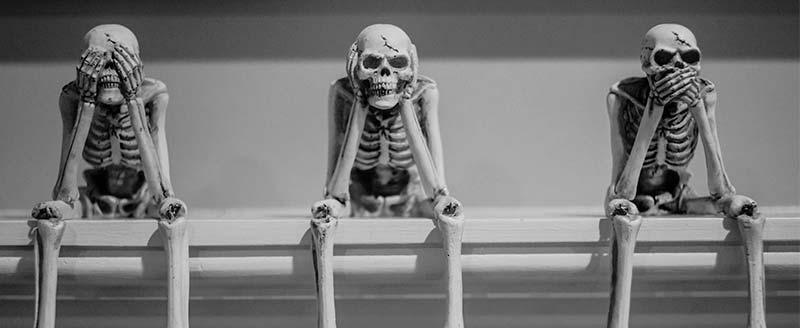What self-acceptance means and why we might have problems with it

Self-acceptance is not a mythical creature everyone knows about but never really saw. It’s real. And unlike a unicorn, whose absence is not that vital for our lives, self-acceptance decides whether you’re going to have the life of your dream or not. It’s also vital for your mental health.
I always say that self-acceptance is where it either begins or ends for you. It’s one of the major keys to having a happy, fulfilling life.
Now, let’s turn to the definition of self-acceptance.
Self-acceptance is, first and foremost, a form of awareness of your strengths and weaknesses (your positives and your negatives) either given by nature or shaped by life circumstances.
It begins with learning all aspects of your being, from biological features (exact shade of eyes and hair, shape of face and body and etc.), to inner discoveries (like type of intelligence, personal limits, fears, desires and etc.) and accepting it by identifying yourself with these learned aspects of your being. That’s what they mean by ‘no matter what happens, you be who you are,’ I guess.
Okay, you might remember Oprah Winfrey once said and I quote ‘Be thankful for what you have, you’ll end up having more. If you concentrate on what you don’t have, you will never ever have enough,’ and I feel like it’s the rightest thing of all to say in this post today.
In this phrase lies a major idea of self-acceptance—be thankful for what you have. But in order to be thankful for what you have, you need to learn what it is exactly that you have. And this is where self-acceptance begins.
But before we jump right to the reasons why you might have problems with self-acceptance, I want to give a tad insight on how it’s conceived.
The world around us and people we’re surrounded with are the mirror for our eyes to see and our hearts to believe. By that I mean that self-acceptance depends on love of our parents, siblings and friends, and their perceptions and visions about who we’re—these people are the mirror we trust to look into every day. It’s linked, whether for best or worst, to our experience in relationships with outside world.
Now, to the reasons. Roughly saying, there are two of them.
1. Self-hate (life in never ending solar eclipse)
Meaning: someone in the past, maybe and more likely, someone very close, treated you badly, showed you disrespect, called you ugly names, bullied you, humiliated you, abused you physically or mentally which shaped false believes you have about yourself today.
You might have specific words you use referring to yourself or when presenting yourself to others.
The most common words in this scenario are freak, stupid, ugly, jerk and so on.
The deepest believes about yourself – I’m unworthy, the worst person in the world, not enough, don’t deserve better life.
In some cases, self-hate can be caused, and you might be bewildered to hear it as I was, by plain laziness. If playing video games or watching TV the entire day and then, at the end of the day, cursing yourself for doing it, calling yourself a looser or complaining that life sucks and nothing ever changes in yours is your reality today, then no congratulations—the root of your problems with self-acceptance is plain laziness.
2. Lack of positive notions about yourself (life on gloomy London bridge)
Meaning: throughout your childhood, from age 3 to age 6 (and as it tends to be later on), you’ve been like a shadow among living people. Your wrongs had been always under attention, even if not necessary in a bad manner, but wins and good things about you were mainly missed.
As a result, now you’re lacking any positive notions about yourself. You don’t feel like the worst person in the world, but you also don’t really know anything special or good about yourself either. These kind of people usually consider themselves plain and unremarkable.
Now, whether it’s self-hate or lack of positive notions, self-acceptance is, first and foremost, a form of awareness and that’s exactly what we need to remember here. Unfortunately, what happens is when we have negative notions about ourselves, we hide them like a worldly treasure deep inside of our subconscious mind, letting it harden and grow profoundly into our very being. Those false notions become our truth at such deep level, that at times it gets almost impossible to distinguish them from real things and therefore change.
Whether out of fear or out of shame, we choose loneliness and suffering. Instead of sharing our thoughts and feelings, we disguise them by cheap, fussy jokes. Instead of questioning all these negative notions, planted in our minds like a weed, we learn to not notice them.
But what we should do instead, is to open up and learn to be aware of them. Self-acceptance depends on love, perception and vision of our parents, siblings and friends, so now, when you’re grown up individual, aware of all the negative notions you’ve stored about yourself that work rather against you, it’s time to check their authenticity and clean the trashy ones off.
Recommended action #1
Right now, call your closest friend and tell openly about all the gnawing thoughts you have about yourself. Do you still think, you’re not beautiful? Do you still believe that you’re not worthy? Ask your closest friend, ask your parents and siblings. You’ll be surprised to know how many of your notions are nothing but wrong.
Recommended action #2
Create a list of your notions about yourself and go out to see if those are true. Ask the mirror to show you, not what you think you see, but it really reflects. At the end of the day cross out all the notions that are false and replace them with true ones.
If your problems with self-acceptance root from plain laziness, well, I do have something for you, too. This is the word responsibility. Stop serve faith and truth to your laziness and finally, learn to take responsibility for your life, decisions and choices.
It was your choice to play video games the entire day, was not it? It was your choice to waste hours watching a TV show whereas others worked to make their lives at least a tad better today. Are these choices bad, you decide, but if today you’ve wasted again, then don’t let your habit to complain and scold and call yourself names win at the end of the day. Because it was your choice and unless you choose different, there is not going to be any difference to how your life rolls.
In this case, I recommend to replace your thoughts at the end of the day something like this:
‘I chose to play video games and I take responsibility for this choice. It’s what I want and I don’t feel guilty or ashamed of it.’
But really, I sincerely wish someday you make another choice.
And remember—
Self-acceptance is not a onetime effort thing but a lifelong journey that shapes a right mindset to have the life of your dream, be happy and complete.
In another post, I’ll share ‘next-step’ aspects to self-acceptance. Not to miss it, please subscribe to my email list or follow me on my social media. Also don't forget to leave a like under this post if you found the information in it useful.







